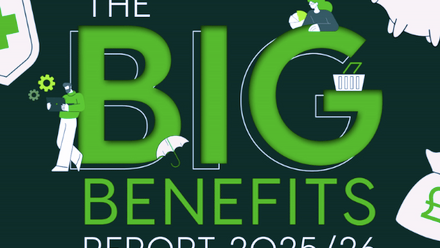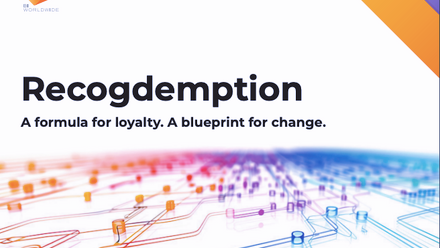How much does employee engagement actually cost?

Personally, I don’t think it needs to cost a lot of money at all. If you want to deliver something specific – and it’s outside of your company’s abilities to deliver it – then, obviously, you will have to pay for a professional employee benefits provider to create and deliver it.
However, if we think about it further, should we consider cost in terms of money alone? I argue we shouldn’t – the benefits of employee engagement (financial or otherwise), outweigh any money spent.
Getting the essentials right
There’s an old joke about a CEO who was asked how many people work in their company. “About half”, they replied. The problem humorously being alluded to? Improving engagement and increasing productivity to reach the disenfranchised – a common objective in our wider economy right now.
There are various definitions of employee engagement, but most boil down to creating an environment of stimulation, recognition, continuous learning and development, all of which lead to a greater contribution by the employee. All studies clearly point to an engaged employee being a productive employee, with such engagement making them feel they are genuinely making a difference to the company and its outcomes.
So, if we are looking at cost as being something other than monetary – ie the benefits the company will receive back from increased productivity and efficiency – making a difference to your employee engagement isn’t “expensive”. Plus, some solutions can be cheap, if not free, to implement:
- Connections: ensure employees feel positive about their peers.
- Vision: employees should understand their goals and objectives and how they will benefit the organisation.
- Career: staff should feel their employment is challenging and meaningful, with opportunities for advancement.
- Recognition: often, poor performance receives instant feedback, while exceptional performance goes unnoticed – make sure the good ones get the attention they deserve.
- Confidence: managers should convey the need for staff be exemplars of high ethical and performance standards.
Such engagement 'essentials', in theory, shouldn’t require high monetary investment, as they function best through robust systems, clear communications and good behaviours, all of which should be woven into an employer’s engagement strategy. Sure, there’s cost for the various additional supporting programmes and projects, as they require industry-specific experience and expertise to be delivered, but when you think of the bottom-line benefits of such engagement, the cost starts to dwindle in importance.
It’s good to talk
Why? Well, with trends linking engagement with health in the workplace, a focus on nurturing and developing staff has led to employers challenging subjects that in the past have proved too difficult and delicate to approach, such as personal finances and mental/physical health. With each issue having a knock-on effect to the other – a mental or physical health issue can consume an employee, leaving their finances in disarray, for example, while problem finances can lead to stress, depression and absenteeism – this focus will do no end of good for employees’ health and wellbeing, resulting in increased overall productivity. Communication and engagement on financial wellbeing in particular is hugely complementary to the wider health of the workplace, while having an overall wellbeing engagement strategy is integral to help your staff be happy at work.
So, does employee engagement 'cost' a lot? No – even when you do have to spend some cash. Besides, for a vital strategy that could create more switched on, productive and efficient employees, is it one businesses can really afford to miss out on?
Author is Adrian Firth, employee benefits consultant at Mattioli Woods.
This article was provided by Mattioli Woods.







